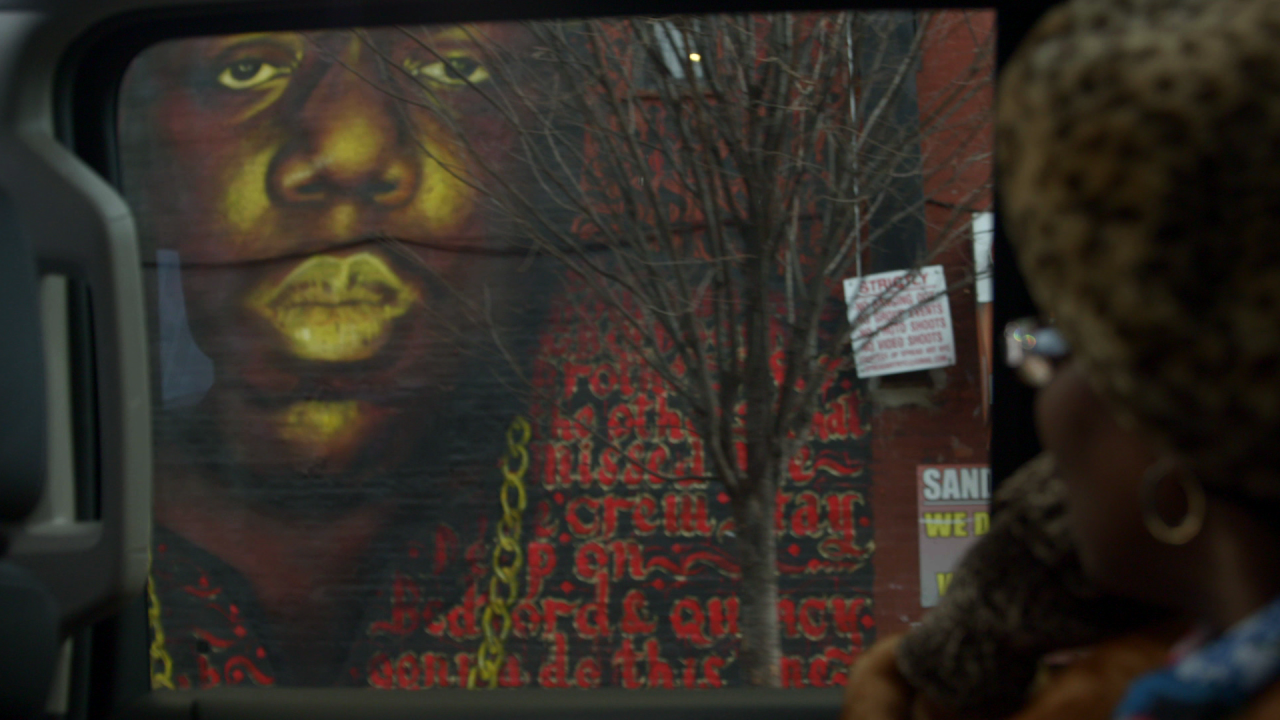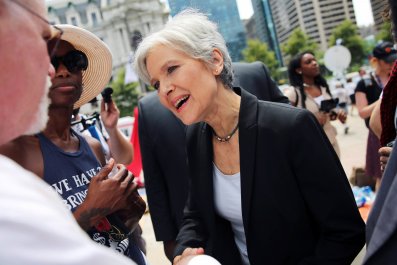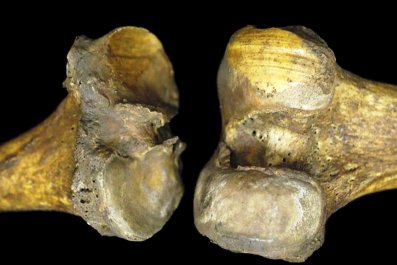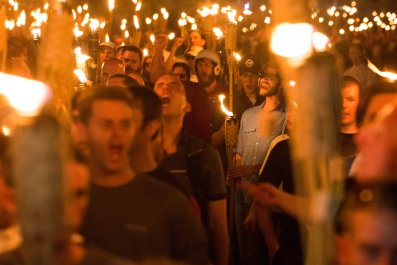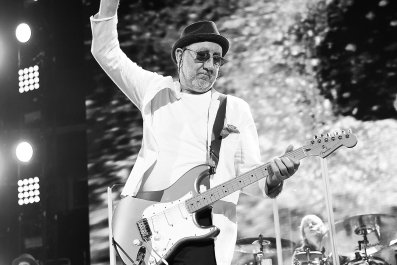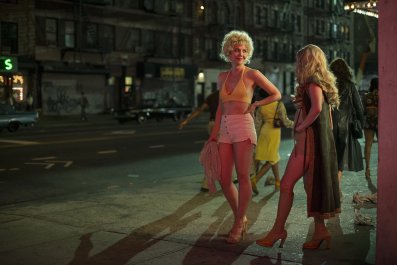A couple of summers ago, "Juicy," by the rapper Notorious B.I.G., was booming from every bar in Brooklyn. Biggie Smalls, rapping about "sippin' on private stock," while pallid hipsters in designer T-shirts ordered $8 pilsners brewed in Queens. The frequency with which his most famous song played seemed to increase as one got closer to the intersection of Fulton Street and St. James Place in the now-fashionable neighborhood of Clinton Hill, where a single mother raised the man born Christopher Wallace. Today, he watches over Fulton Street from a three-story-high mural adorned with a lyric from "Juicy": "Spread love, it's the Brooklyn way."
A&E's Biggie: The Life of Notorious B.I.G. is the first authorized documentary about the crack dealer turned rapper, who found that the best way to escape his surroundings was to describe them in vivid detail:
I know how it feel to wake up fucked up
Pockets broke as hell, another rock to sell
That's from his first album, 1994's Ready to Die, which at the time was deemed "gangsta rap." That appellation seems outdated 23 years later, but it is a reminder of how raw his music was—an East Coast answer to the West Coast scene, in particular Tupac Shakur, a friend before he and Biggie became bitter rivals. The playful tone of Run DMC was gone, as were the social concerns of A Tribe Called Quest.
Biggie was a social concern. Instead of offering uplift, or distraction, he offered reality. His collaboration with producer Sean "Puffy" Combs was incredibly fruitful but also much shorter than it now seems: By the time his second album, Life After Death, was released on March 25, 1997, Wallace, just 25, was dead, gunned down in Los Angeles two weeks earlier. The case remains unsolved. Others have tried to play detective, with little result; A&E's Biggie thankfully does not. And he was clearly aware that things could end only one way, as in this couplet about his mother from "Suicidal Thoughts":
I wonder if I died, would tears come to her eyes?
Forgive me for my disrespect, forgive me for my lies
A Manhattan screening of the documentary brought together many of Wallace's friends and family, including his mother, Voletta, and wife, Faith Evans. Both are listed as executive producers. Biggie benefits greatly from their permission to use his music. His raspy vocals—with their verbal mastery and bubbling flow—haunt the film. The talent is obvious, but the scope of that talent was more limited than his fans may want to admit. Wallace's music, rife with images that are violent and misogynistic, glorify drug dealing and rarely look beyond gratifications of the self. "Juicy," for all its supposed shows of comity, opens with a sharp rejoinder: "Fuck all you hoes."
What is most difficult about Biggie is also what is most enthralling. His journalistic account of Brooklyn in the 1990s documents a place struggling to recover from the crack years, still a hopelessly woebegone sibling to Manhattan. Biggie wasn't nice, but neither was his Brooklyn. This was when Myrtle Avenue was called Murder Avenue, before bespoke cocktail lounges and $10 million brownstones arrived in the borough. An incredible trove of never-seen footage is a grainy window into Biggie's world, and the film, wisely, neither glamorizes nor demonizes the choices he made.
There is also testimony from Jay Z and Nas, two fellow New York rappers who transcended the streets by chronicling them. When Jay Z talks about his youth in the Marcy projects in the Bedford-Stuyvesant section of Brooklyn, it is with the remove of a man who can look at his early struggles with winsome humor, so sure is he that they can never pull him back across the East River. Life After Death suggests that Biggie was getting ready to leave Brooklyn too, perhaps to branch out from music into other enterprises. But while Jay-Z snagged an invitation to the White House from Barack Obama, Biggie remains on Fulton Street, still looking down on the cops.
After the show, there was a talk with Evans and Voletta Wallace, as well as Lil' Cease, a member of the hip-hop outfit Junior M.A.F.I.A., mentored by Biggie (his roster produced no stars besides Lil' Kim). Wallace seems reconciled to her son's imperfections, which she describes movingly in the documentary, recalling with humor how she once threw out a plate on which cocaine had presumably been cooling into crack. She thought it was leftover mashed potatoes.
"It's very possible he might be in jail today," she said on stage. "Or maybe he would be living in Bora Bora with 500 women." The joke seemed to make the crowd uneasy. Wallace got serious. "I'm looking forward to seeing him in paradise," she said.
Biggie: The Life of Notorious B.I.G. debuts on A&E September 4.



